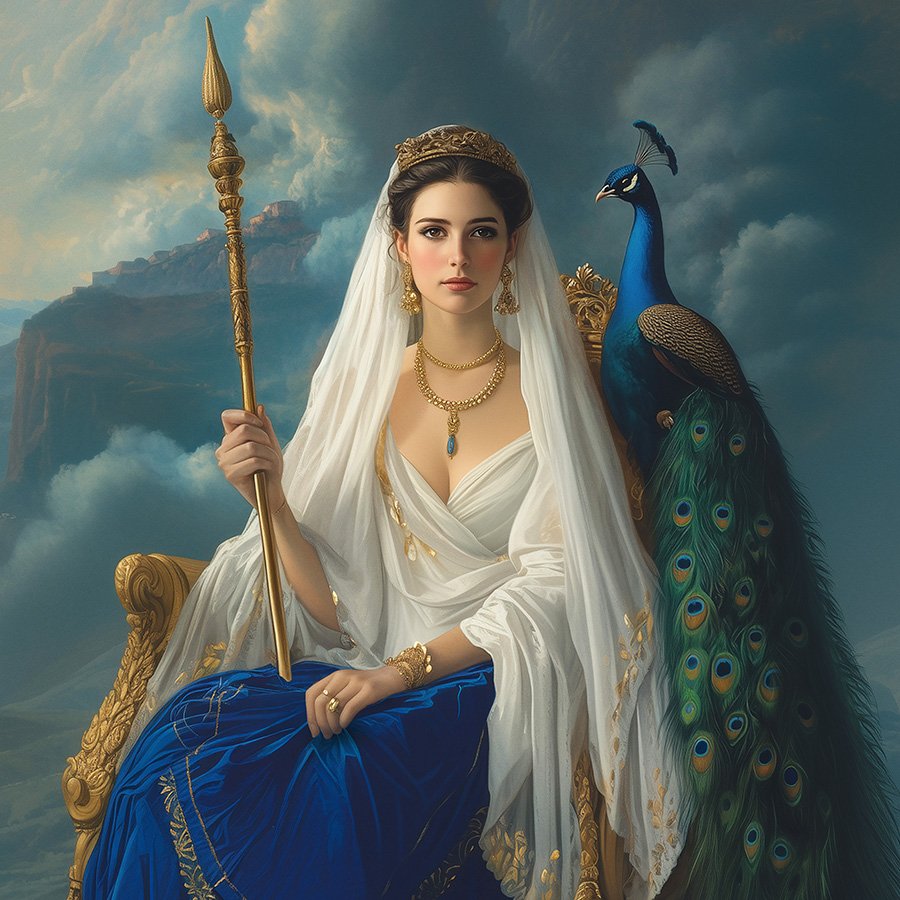Hera
Hera, the revered queen of the Olympian gods, embodies sovereignty, commitment, and the complexities of partnership. Often overshadowed by tales of jealousy, her narrative invites a deeper exploration of divine feminine power and the sacredness of vows. Through her, we examine the balance between autonomy and union.
Cybele, the Great Mother
Cybele, known as the Great Mother or Magna Mater, is a powerful symbol of fertility and the untamed forces of nature in ancient mythology. Originally revered in Phrygia, her worship spread across the Greco-Roman world, where she was celebrated for her connection to the earth’s cycles. Her myths, especially the tragic tale of Attis, underscore themes of rebirth and renewal. Cybele’s enduring legacy reflects humanity’s deep reverence for the nurturing and transformative powers of the natural world.
Tiamat
In ancient Mesopotamian mythology, Tiamat is a formidable deity representing primordial chaos and the cosmic ocean. As the mother of the first gods, she embodies the untamed forces from which the universe emerged. Her epic battle with the god Marduk, resulting in her defeat and the creation of the heavens and earth from her body, symbolizes the triumph of order over chaos. Tiamat's legacy endures as a potent symbol of the dynamic interplay between creation and destruction, influencing art, literature, and modern interpretations of myth.




